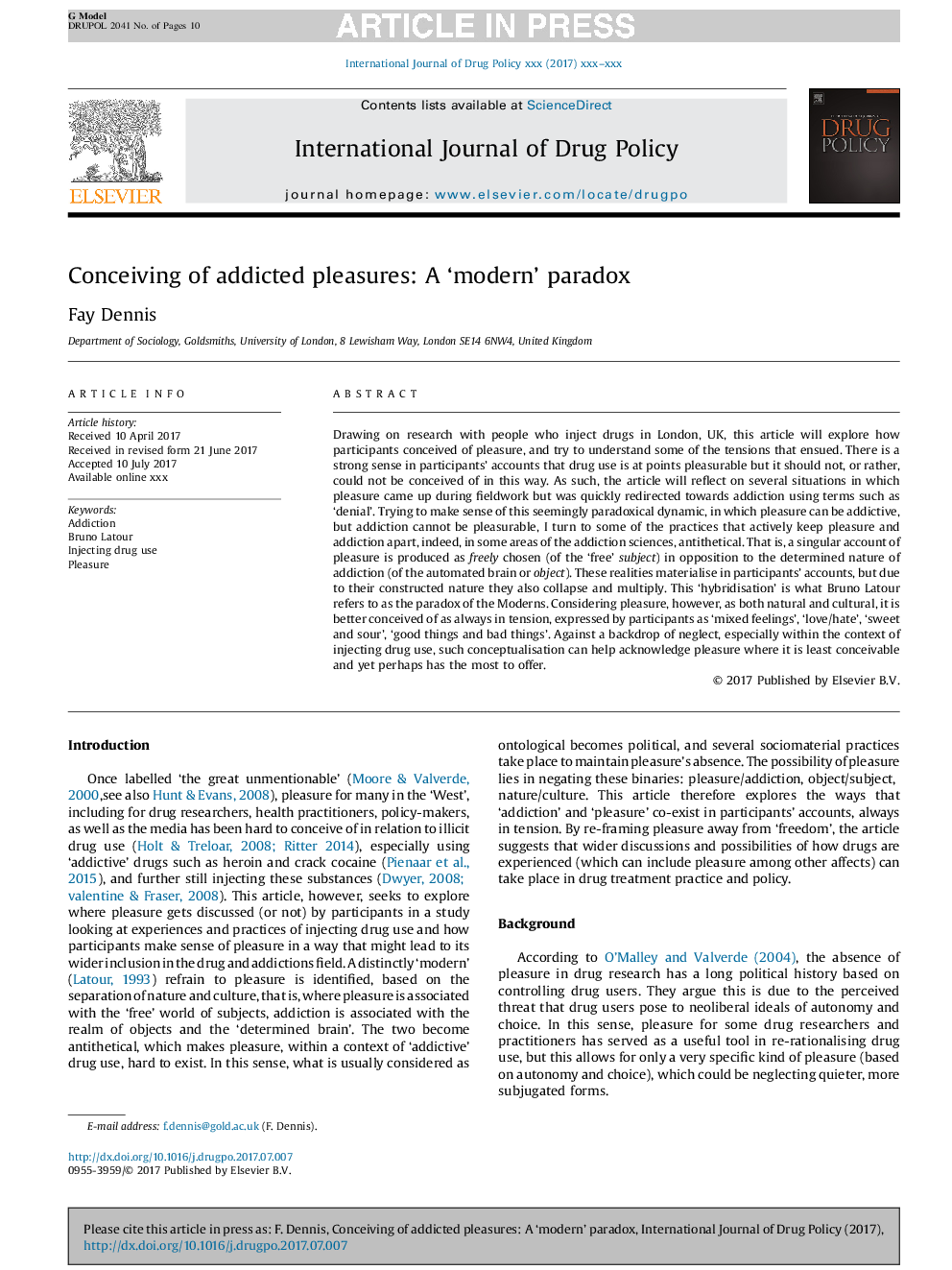| Article ID | Journal | Published Year | Pages | File Type |
|---|---|---|---|---|
| 7512443 | International Journal of Drug Policy | 2017 | 10 Pages |
Abstract
Drawing on research with people who inject drugs in London, UK, this article will explore how participants conceived of pleasure, and try to understand some of the tensions that ensued. There is a strong sense in participants' accounts that drug use is at points pleasurable but it should not, or rather, could not be conceived of in this way. As such, the article will reflect on several situations in which pleasure came up during fieldwork but was quickly redirected towards addiction using terms such as 'denial'. Trying to make sense of this seemingly paradoxical dynamic, in which pleasure can be addictive, but addiction cannot be pleasurable, I turn to some of the practices that actively keep pleasure and addiction apart, indeed, in some areas of the addiction sciences, antithetical. That is, a singular account of pleasure is produced as freely chosen (of the 'free' subject) in opposition to the determined nature of addiction (of the automated brain or object). These realities materialise in participants' accounts, but due to their constructed nature they also collapse and multiply. This 'hybridisation' is what Bruno Latour refers to as the paradox of the Moderns. Considering pleasure, however, as both natural and cultural, it is better conceived of as always in tension, expressed by participants as 'mixed feelings', 'love/hate', 'sweet and sour', 'good things and bad things'. Against a backdrop of neglect, especially within the context of injecting drug use, such conceptualisation can help acknowledge pleasure where it is least conceivable and yet perhaps has the most to offer.
Related Topics
Health Sciences
Medicine and Dentistry
Psychiatry and Mental Health
Authors
Fay Dennis,
